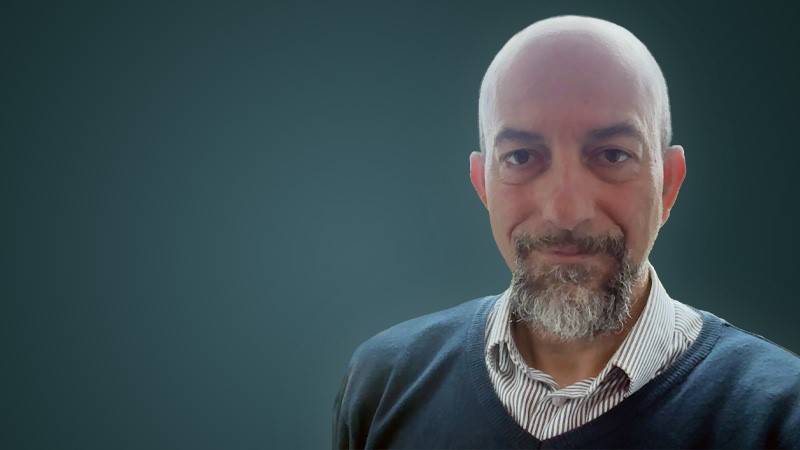Scaling up assistive robotics

Why It Matters?
The integration of Internet of Things (IoT) and robotics in healthcare and assisted living is crucial for addressing the needs of an ageing population.
As life expectancy increases, so does the prevalence of age-related conditions such as dementia and frailty. Traditional care models are becoming less sustainable due to the increasing demand and shortage of care staff.
Mauro's work focuses on creating smart systems that can provide support and enhance the quality life for older adults. These advancements can lead to more efficient use of resources, reducing the burden on healthcare systems and providing peace of mind to service users, families, and caregivers.
"As we continue to advance the integration of IoT and robotics in healthcare, our goal is to create intelligent systems that not only enhance the quality of life for ageing populations but also provide sustainable and scalable solutions for global health and social care challenges. The establishment of the Global Research Institute in Health and Care Technologies at Heriot-Watt enables us to collaborate with researchers worldwide, driving innovation and ensuring that our technologies are aligned with the needs and values of the communities we aim to serve."
Associate Professor Dr Mauro Dragone
Collaborate to Innovate
With the establishment of the Global Research Institute in Health and Care Technologies at Heriot-Watt, Mauro's expertise in the intersection of IoT and Robotics provides numerous collaborative opportunities for researchers focused on addressing the needs of ageing populations worldwide. Collaborations include investigation of smart home and robotic technology that can be used to assess and assist individuals living with conditions such as dementia and frailty.
Mauro designs challenging and industry-relevant problems, often with open-ended components, to foster creativity and curiosity. This approach promotes independent learning and enables academic colleagues and students to explore specific areas of interest.
Encouraging and embedding end-user feedback in the work of PhD and MSc students by liaising with relevant organisations and facilitating focus groups, co-design sessions, and user studies as part of their projects. This interaction sparks student interest as they see the immediate, real-world application of their studies. It grounds abstract technical requirements and research findings in first-hand experience, allowing students to appreciate the impact of assistive robotic technology on people's lives and understand the concerns and expectations surrounding these advancements.
Real World Impact
Following his PhD, Mauro participated in EU and national projects developing wireless sensor networks and algorithms for intelligent buildings to enhance energy efficiency while ensuring inhabitant comfort. These techniques are applicable to Ambient Assisted Living (AAL), where smart homes are designed to support people with care needs. This experience allowed Mauro to delve into robotics, recognising that simple robots become more functional when integrated with smart spaces.
In 2011, Mauro initiated the EU project RUBICON (Robotic UBIquitous Cognitive Network), a 2.5M EUR project that laid the foundations for systems of networked robotic and sensing devices to work together across diverse applications. More recently, a Knowledge Transfer Partnership between Heriot-Watt University and a leading housing association in Scotland integrated a fleet of autonomous robots with a building management and a digital telecare system. The robots act as first responders in emergencies and facilitate video-calls with tele-care staff. This optimises care staff resources and reduces travel requirements and associated carbon emissions while ensuring resident safety and prompt risk identification.
Current role
Mauro has an active role within the Global Research Institute in Health and Care Technologies at Heriot-Watt University, he is particularly active within the research theme ‘Healthy Ageing'.
Serving as a co-investigator for the EPSRC (Engineering and Physical Sciences Research Council) NetworkPlus EMERGENCE, Mauro brings together researchers, businesses, end-users, and health and social care practitioners to build the knowledge and capabilities needed for healthcare robots to support frail individuals in the community.
Additionally, leading OpenAAL, an open and remote access living lab from the National Robotarium, which is aimed at accelerating the creation of innovative, sustainable, and affordable solutions for healthy ageing and independent living systems. Through OpenAAL, the team supports Heriot-Watt University's implementation of a user-centred living lab concept, integrating concurrent research and innovation processes within a public-private-people partnership. Collaborating actively with key care organisations, housing associations, and nursing homes in Scotland.